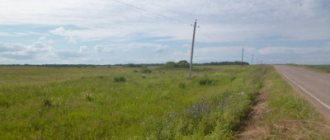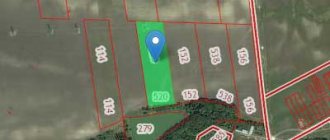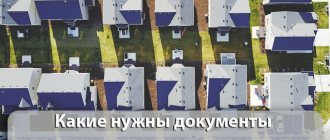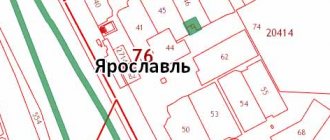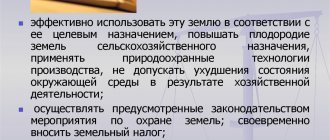As part of social support for certain categories of the population, the state guarantees them certain benefits. One of them is the allocation of land plots from among those that are in state or municipal ownership.
At the same time, the provision of land occurs on special conditions - without the need to hold auctions, make payments, etc. Therefore, it is worth determining which categories of the population have the right to receive a land plot and under what conditions.
Who has the right to receive a land plot on preferential terms?
The list of preferential categories for obtaining a land plot is quite wide, since it is established at both the federal and regional levels.
In particular, federal legislation provides benefits to the following citizens:
- heroes of the Russian Federation;
- heroes of labor of the Russian Federation;
- full holders of the Order of Glory;
- heroes of the USSR;
- heroes of socialist labor.
As for the regional level, the list is much longer, since preferential categories may differ in different regions - it all depends on the regulations adopted in a particular subject of the Russian Federation.
The categories of beneficiaries that are found in most regions include:
- large families;
- citizens in need of residential premises;
- family members of the deceased hero of the Russian Federation;
- Young professionals;
- young families with a child (one or more);
- orphans;
- families with a disabled child;
- military personnel;
- disabled people of groups 1, 2 and 3;
- WWII veterans;
- police officers;
- Chernobyl victims;
- public sector workers;
- pensioners (under certain conditions);
- persons who live in rural areas, etc.
This list is incomplete, since these categories are different in each region. It all depends on the legislative features of a particular subject of the Russian Federation and some other factors.
For example, in regions with a large amount of free land, the list of beneficiaries is very wide, but in densely populated regions and cities the opposite situation is observed.
In addition, certain advantages are available to citizens who own a building located on the territory of a site, use it with the right of free possession for a certain period, etc. They can, out of turn, formalize ownership rights to land, including on the basis of free provision .
Possible goals and conditions
It is worth considering that it is almost impossible to immediately obtain free ownership of a land plot - initially it is allocated only on the terms of fixed-term or indefinite use.
Moreover, the minimum established period for such use in most cases is 5 years .
During this period, the owner can use it at his own discretion, but within the limits of the permitted uses established for him. The permissible purposes of use for preferential allocation of land are:
- individual housing construction (as part of improving living conditions);
- maintaining a personal subsidiary plot;
- gardening;
- country house construction;
- grazing;
- farming;
- haymaking, etc.
These goals are set for the site depending on which preferential category of citizens the applicant belongs to. At the same time, changing the type of permitted use at the initiative of the owner is not allowed - only the legal owner (that is, a state or municipal authority) has the right to do this.
However, in the future, if certain conditions are met, it is possible to register ownership rights to it.
In some cases, this happens automatically after the expiration of a set period; in others, this requires building a house on the site, etc.
In any case, the minimum period established for the site must pass, and during this entire time it must be used only with the intended permission.
Requirements for sites
When submitting an application for land, a citizen can immediately indicate a specific property that interests him. However, it is worth considering certain requirements:
- this site must be owned by the municipal or state body that will consider the application;
- its location must be within the constituent entity of the Russian Federation in which the applicant lives;
- The legislation sets maximum limits on the area that one person (or family) can receive - usually 15 acres (larger plots will not be provided to preferential categories of citizens);
- the land plot must have clear boundaries (that is, go through the land surveying procedure) and a cadastral number (that is, be registered with the cadastral register).
In addition, the site should not have any restrictions.
For example, lands that belong to other citizens or organizations (including on the right of use), reserved for state or defense needs, selected as the object of bidding, etc. are not allocated. A complete list of grounds for refusal to allocate land is given in the Land Code of the Russian Federation.
Algorithm of actions
The procedure for the free transfer of municipal or state land to citizens is regulated by Article 39.14 of the Land Code of the Russian Federation.
The standard procedure includes the following steps:
- Collection of documents confirming the right to free provision of land.
- Applying to local authorities with an application.
- Obtaining a decision on the allocation (refusal to allocate) a plot.
- Concluding an agreement on the transfer of land for use.
- Territory demarcation (if boundaries are not established).
- Obtaining a cadastral plan.
At the final stage, it is necessary to register the documents in the Rosreestr division.
Application to the local administration
The distribution of land territories is carried out by municipal authorities. An application for granting an allotment can be submitted:
- in person to the housing committee of the administration or to the MFC (multifunctional center);
- by registered mail;
- on the Gosuslugi portal.
The legislation does not establish a strict form for applying for free land. The document can be drawn up in any form, taking into account the requirements of paragraph 1 of Article 39.17 of the Land Code of the Russian Federation.
The sample application contains:
- personal data of the applicant (last name, first name, patronymic in full);
- passport details;
- address of the actual residence;
- information about the exact location of the site;
- cadastral number (if available);
- a request for the provision of land (indicating the purpose of use);
- grounds for gratuitous transfer of allotment;
- contact information (mailing address, telephone number, e-mail);
- list of attached documents;
- date and personal signature of the applicant.
An application form for the provision of a land plot is available.
The application may be submitted through a representative. To do this, you need to contact any notary office and issue a power of attorney.
Package of documents attached to the application
The right to free allocation of land is documented. The specific list of papers and certificates depends on the applicant’s membership in one or another category of benefit recipients.
The standard package includes the following documents:
- applicant's passport (copy);
- marriage registration document (copy);
- certificate of family composition;
- copies of identification documents of family members (passport or birth certificate);
- an extract from the Unified State Register of Real Estate about the absence of land plots in ownership.
When registering an allotment that is in perpetual use, additional documents will be required:
- title papers for a residential (or country) house;
- agreement on the transfer of the site for free use;
- certificates confirming the intended use of the territory (for example, a construction permit or an act of commissioning).
The legislation allocates one month (30 calendar days) for checking documents and making a decision on the provision of land. After the expiration of the period, the municipality issues a resolution on the transfer of the site or refuses the applicant.
Result of consideration
The decision of the local government body is made in writing. If there are no obstacles to the transfer of land, the applicant is invited to conclude an appropriate agreement.
In case of a negative decision, the citizen is sent a written response justifying the reasons. The notification address is indicated when submitting the application.
Site design
In case of a positive decision on the transfer of land, the applicant is asked to sign an agreement regulating the conditions and procedure for land use. The second party to the transaction is the local government body.
The agreement reflects:
- purpose of the site;
- exact location;
- terms of land transfer;
- rights and obligations of the parties;
- liability for violation of essential terms of the contract.
At the next stage, the territory is surveyed and boundaries are established. The state assigned the responsibility for carrying out boundary work to the administration of the municipality. Based on the survey results, the applicant receives a cadastral plan (passport) of the site.
The procedure for registering an allotment is completed by state registration of property rights.
The following must be submitted to the territorial branch of Rosreestr (or to the MFC):
- Application (filled out according to the established template).
- Passport of the future owner.
- Cadastral documents for land.
- Resolution on the allocation of land.
- Agreement on transfer of allotment.
- Receipt for payment of the state fee - 2,000 rubles (Tax Code of the Russian Federation, Article 333.17).
After entering information into the unified real estate register, the citizen is assigned ownership rights.
Appeal against refusal to provide a land plot
A negative decision of an official can be challenged. In this case, the procedure established by the Code of Administrative Proceedings (CAS RF) must be observed.
The contestation procedure includes the following steps:
- sending a complaint to a local government body;
- applying for protection of a violated right to a court.
It is necessary to go to court after municipal employees refuse to satisfy the complaint. Otherwise, the judge will return the administrative claim, since the requirements for pre-trial settlement of the dispute have not been met.
The administrative claim details:
- purpose of use of the site;
- receipt procedure;
- reasons for refusal to provide land.
A copy of the negative decision of the municipality and a receipt of paid state duty (300 rubles) are attached to the claim.
Conditions for obtaining a land plot
In addition to belonging to the preferential category of the land applicant, he must also meet certain requirements. They are different for each group of beneficiaries, so it is worth considering separately the most common of them:
Large families
The basic requirements that apply in almost every region include:
- number of children - at least three (in some regions it may be more);
- children's age is less than 18 (or 23 if the child is studying at a university and does not work);
- citizenship - Russia;
- place of registration - the subject of the Russian Federation in which the application is submitted;
- period of registration - at least 5 years in one place (children must live with their parents);
- property status - the family must not have any other land on the territory of the Russian Federation (in some cases it is required that the family does not have any residential real estate at all);
- relationship between parents - they must be officially married (with the exception of situations in which the applicant is a single mother or father);
- the intended purpose of the site is individual housing construction, summer cottage farming, gardening (entrepreneurial purposes are usually prohibited);
- the conditions under which the land is provided are free use with the possibility of further registration of ownership rights (in this case, the plot must be registered in equal shares for each family member);
- possible area - from 6 to 15 acres;
- special requirements - parents should not be deprived of parental rights, none of the children should be fully supported by the state.
Some regions may have additional requirements or may not have some of the above. For example, there are regional programs under which land is provided to young parents with many children. In this case, the age of both father and mother should not exceed 35 years.
Young professionals
They must meet the following requirements:
- need for housing (specific parameters are determined by regional legislation);
- work in rural areas for at least a year after graduation (secondary, higher or postgraduate education);
- carrying out work during a given period within the framework of the acquired specialty or profession;
- age - less than 35 years.
At the regional level, a specific list of professions can be established whose representatives will be able to apply for a plot. Typically, this list is compiled taking into account exactly what specialists are missing in a particular locality.
Military personnel
The conditions are as follows:
- duration of military service - more than 10 years;
- place of service - within the constituent entity of the Russian Federation in which the site is located;
- Possible area of the plot is from 6 to 25 acres (depending on the type of terrain).
There are separate programs under which the minimum service life must be 15 years. Benefits may also be provided to those military personnel who are planning to leave service and retire (provided they have the necessary length of service).
Disabled people
There are practically no requirements for representatives of this category, except that they must be recognized as in need of housing.
It is worth considering that the benefit is to receive a plot out of turn, without the need to participate in the bidding procedure. However, it is still provided on a paid basis - the price is set depending on many parameters (area, location, etc.). But individual regions of the Russian Federation may introduce programs according to which this procedure will be free.
Another common requirement for all the categories listed above is the fact that the application for a plot must occur for the first time - the right to receive a free plot can only be exercised once. Therefore, it is necessary to provide a document confirming the absence of such a plot in the property.
For what purposes can a land plot be allocated free of charge?
Legislation establishes the division of land territories of the Russian Federation according to their intended purpose (Land Code of the Russian Federation, Article 7).
The plots are provided to citizens free of charge to solve the following tasks:
- farming;
- gardening or horticulture;
- Individual housing construction (construction of individual housing);
- construction of a garage;
- maintaining personal subsidiary plots (LPH).
For citizens who violate the rules for the intended use of land, administrative liability is provided in the form of a fine from 3,000 rubles to 10,000 rubles (Administrative Code of the Russian Federation, Article 8.8).
